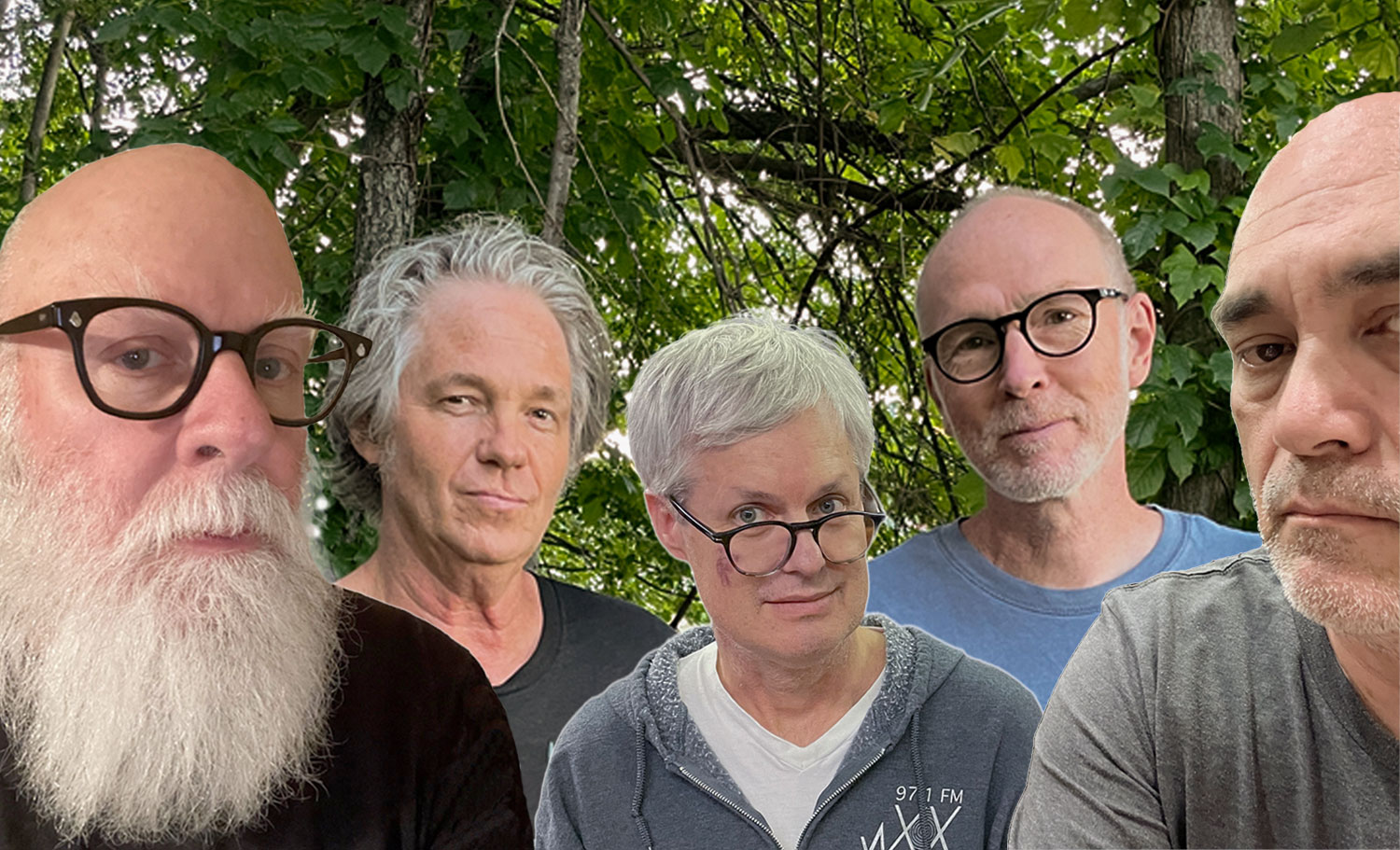It’s an uncharacteristically cold, gray day in Los Angeles, which doesn’t seem to bother Moby. He’s up early and ready to talk, and no subject appears to be off limits. Born Richard Melville Hall in New York City on September 11, 1965, Moby is the only child of Elizabeth McBride and James Frederick Hall, a chemistry professor, who died in a drunk driving accident when Moby was 2.
Raised by his mother, Moby bounced around from San Francisco to Connecticut, living on food stamps and government welfare—despite his mother coming from a wealthy family. Described as a “pot-smoking hippie” by her son, McBride, determined to forge her own path, often crashed with friends, exposing Moby to a subversive counterculture rife with addiction.
More from Spin:
- ‘Sorry, Baby’ Dares Us to Smile
- Pearl Jam Drummer Matt Cameron Steps Down From Band
- How a Trap House Freestyle Became Hip-Hop’s Ultimate Weed Anthem
Beginning at age 9, Moby became increasingly entranced with music. He started fiddling around in punk bands in the early ’80s before graduating to electronic music and returning to New York City, where his DJ career began to take shape.
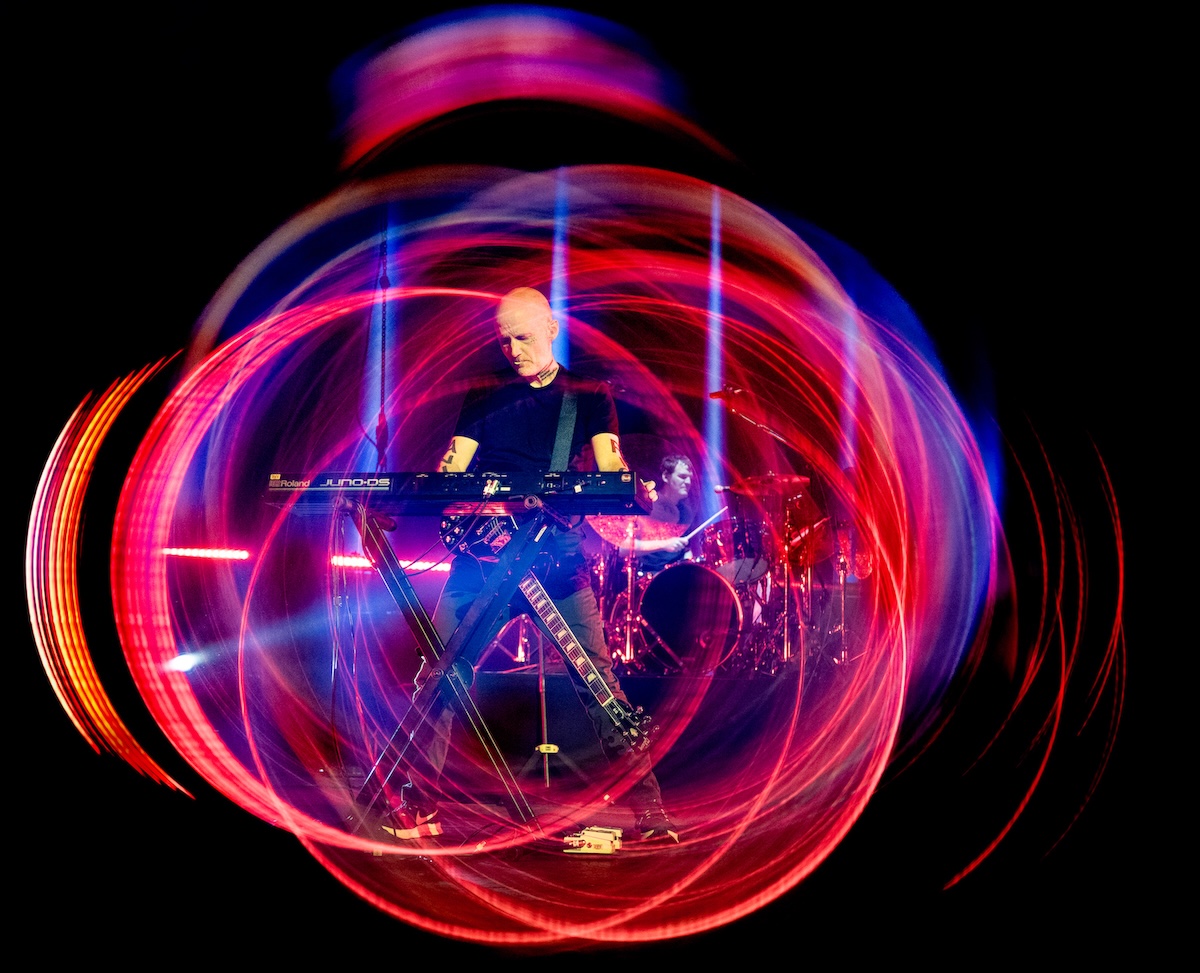
While his journey is arduous, nuanced, and has literally filled pages upon pages of multiple books (he released his first, Porcelain: A Memoir, in 2016), Moby sailed into musical infamy with his fifth album, Play (released May 17, 1999), which sold more than 12 million copies. The critical and commercial breakthrough, which contained songs like “Porcelain,” “South Side,” and “Natural Blues,” took Moby to new, unimaginable heights, although it wasn’t exactly a fairytale.
At the pinnacle of his success, Moby succumbed to the pitfalls of fame—sex, drugs, and in his case, techno. It would be years before he could pull himself out of his self-imposed prison, one that left him undeniably hollow and spiritually broken.
Now in his sixteenth year of sobriety, the staunch animal rights activist has found another passion—acts of service. In May, he re-launched his website mobygratis, a free music library designed for his fellow creators. True to his ethos, it comes with some conditions: “it cannot be used in advertisements or campaigns supporting right-wing politics or causes,” nor can it be used to “promote meat, dairy, or other animal products.” He also sponsors other addicts as part of a 12-step program and continuously strives to work on behalf of animals.
In a candid interview, Moby got refreshingly honest about missing his mother’s funeral, veganism, addiction, getting clean, and “the gentle switch” that finally took him to that place.
SPIN: I’ve been vegetarian for 25 years. I admire that you have such a passion for animals. How do you apply that in everyday life aside from just being vegan?
That’s a wonderful question. And it’s also a question that I try to ask myself almost every waking minute of every day. There are lots of things in life that I like. But ultimately, the only thing that’s my primary purpose and the thing that’s most important to me is working on behalf of animals. The question then [becomes], what can we do with our limited resources, limited time, fractured media, and going up against these huge vested interests? What can we possibly do that’s going to move the needle?
And I still don’t have a great answer for that. I don’t know if there’s a one-size-fits-all approach to activism. So, me personally, I just try to do everything, and I never know if it’s going to work. I guarantee you, I will never do enough. That will be my biggest regret on my deathbed is like, “I could have done more; I just didn’t know what to do.”
Are you encouraged by the plant-based movement that’s kind of happening?
In 1987, when I went vegan, you know, veganism was so weird, we didn’t know how to pronounce it. I think in 1987, in the entire world, there were three vegan restaurants. Maybe only two, but it was so weird and obscure. It’s been great that it’s risen in awareness that almost everybody’s aware of it.
I will say, I had this moment—and I think a bunch of us did—at the end of 2019. It seemed like veganism was poised to become this huge movement and really effect change. Joaquin Phoenix had his Golden Globe and Oscar speeches, and all of the vegan activist groups were doing so well. Beyond Burger had launched, and Impossible had launched. And then the pandemic happened. It just seems like ever since then, especially in Los Angeles, that half of the vegan restaurants have closed down. And not to enter the world of insanity too much, but a lot of L.A.—we’ll call them yoga vegans—have embraced QAnon, which is very strange.
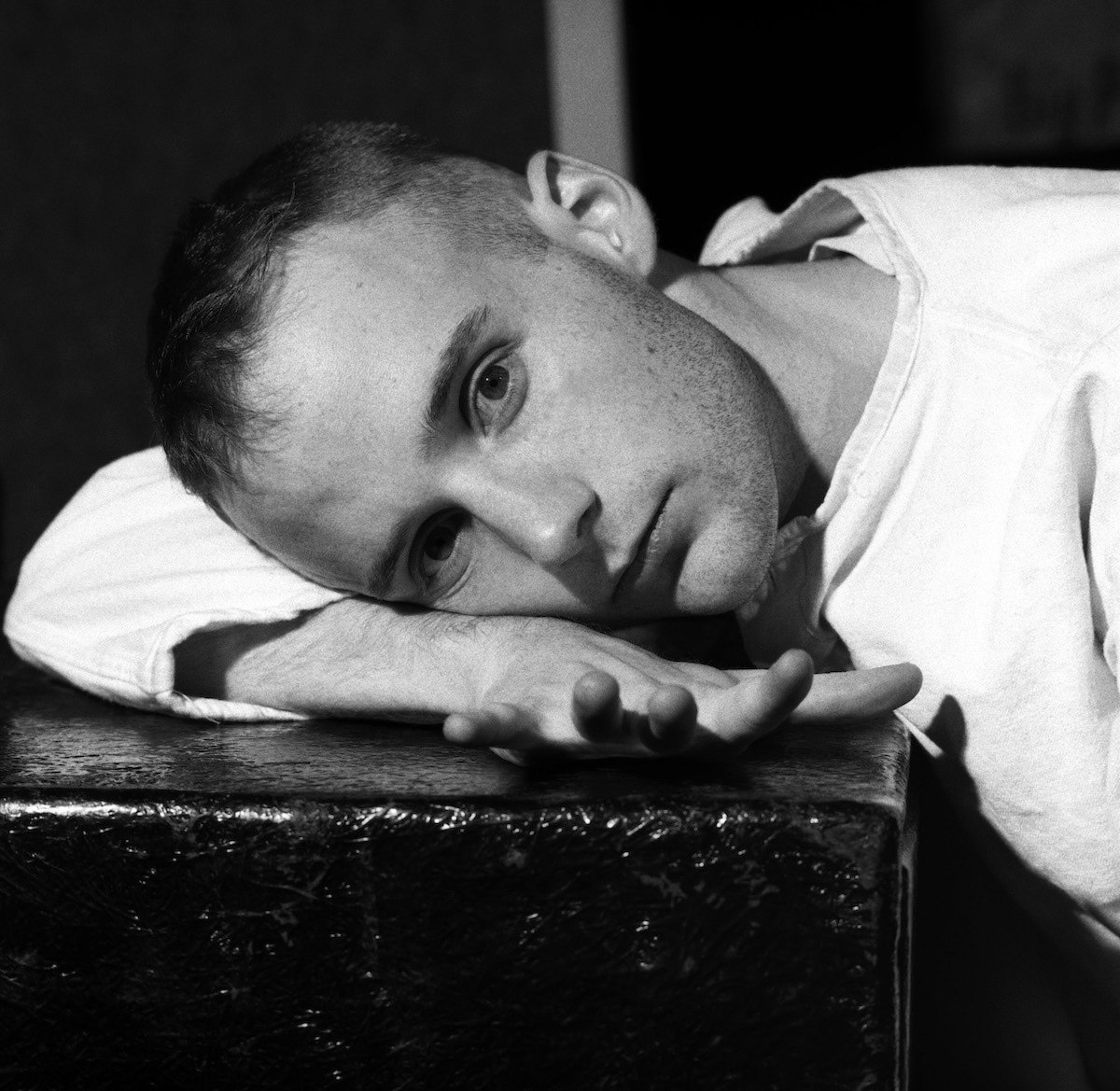
Weird.
I have a few friends who were in the vegan movement and are now eating meat, living in the Midwest, and voted for Trump. So some weirdness happened. To your question, I still find it really encouraging, and I feel like the people who are left are fully committed. Also, there’s so much growth. Granted, I’m 59 years old, so I don’t have a lot of contact with Gen Alpha, but it seems like there’s a ton of growth with Gen Z and Gen Alpha, so that encourages me. Even the people who think they disagree with us agree with us. Like, if you go to someone who is a meat-eater, anti-vegan, and say, “OK, are you upset with animal cruelty?” They’ll say yes. Or you’ll say, “OK, so you could never hurt an animal?” They’ll say yes. Then the next question is, “Do you think it’s wrong when someone hurts an animal?” And they’ll say yes. They agree with us, but then the next question is, “Well, what are you willing to do about that?” And that’s when they punch you in the face.
I’m from Omaha, and I’m always shocked by people’s diets there. When I go to L.A., I feel like you guys are so fortunate because you do have so many great vegan restaurants.
It’s still incredibly inspiring. I certainly don’t want to be a downer, but I guess compared to that moment as I mentioned and the end of 2019 when it really seemed like we were on the cusp of something big…this is what I almost think of it as. In the late ’90s, there was this period when all these new internet companies started up and then 90 percent of them closed down. The ones that survived ended up being incredibly successful. So I’m really hopeful that this is basically a repositioning of the vegan world. Hopefully the end result is it’ll be even stronger because we’ve sort of learned what not to do.
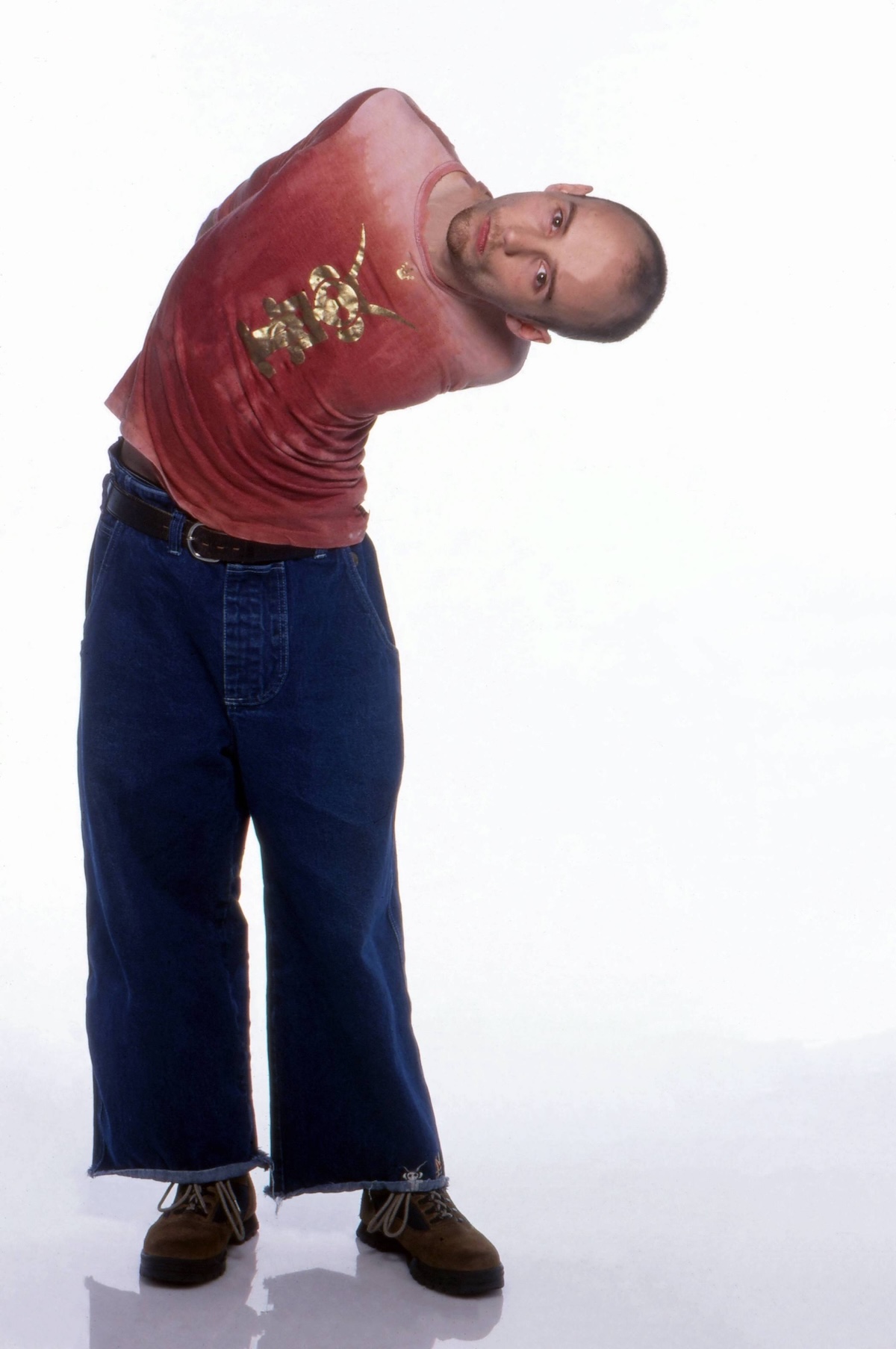
I hope you don’t mind me broaching the topic, but you got sober more than 15 years ago. I was reading an interview and you said something like falling asleep at your mother’s funeral wasn’t your bottom. What was your bottom?
Just to clarify it a little bit, I didn’t fall asleep at my mom’s funeral. I was asleep and missed her funeral. There might have been some passive aggressive emotional things going on. But yeah, I was basically drunk and high and slept through her funeral, but I slept through it at home.
Oh, OK so not at the funeral.
That’s the interesting thing, and I have a weird analogy. In 1992, there used to be a vegan restaurant in New York called Zen Palace and it was really great vegan Chinese food. I went to Zen Palace in 1992 and one of the things I ordered was a purple eggplant because I’d never had one but like a Japanese eggplant, right? I ordered it, I didn’t like it and it gave me a stomachache as a result. Since then I have never eaten purple Japanese eggplant. As opposed to alcohol and drugs, I was sick and hungover probably five, 10,000 times. I kept going back to it. A lot of people have super dramatic experiences. A friend of mine spent two days in bed with his fiancée and at the end of the two days, he realized she’d been dead the entire time. That was his wake-up call.
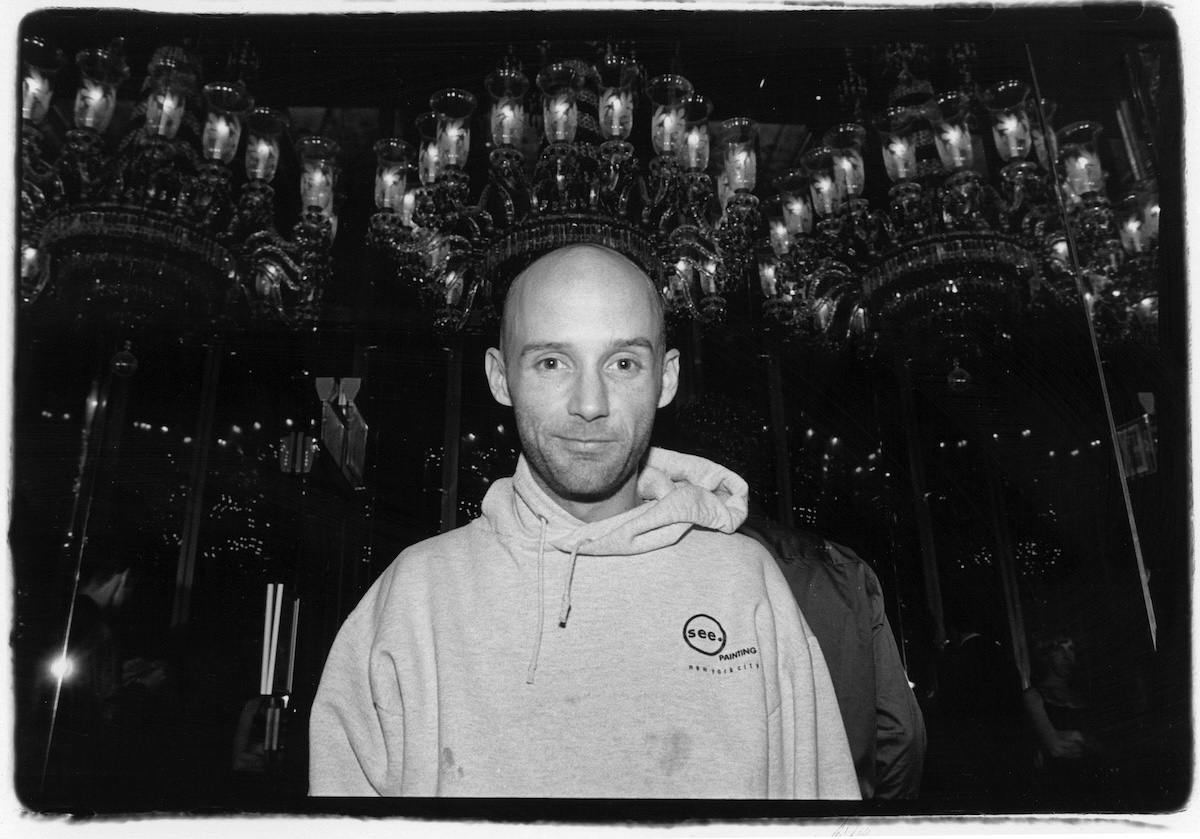
Oh wow.
Those are those sort of bottoms…or the person who wakes up in their driveway and realizes they’ve driven home in a blackout with their kids in the backseat. Those are the really dramatic bottoms. Mine was day in, day out, terrible bottoms that I just became so accustomed to. Every night—and I don’t know if this is a sensitive thing, given what you’ve gone through—but every night I would try to take enough drugs and drink enough that I wouldn’t wake up. Then when I woke up at 5:00 in the afternoon, I would be so disappointed that I was still alive, and this just seemed normal to me. I was like, “OK, maybe next time I’ll finally get lucky and not wake up.”
One of those moments might be a bottom for some people, but for me, it just happened every day. Then finally, my final bottom was just taking a train back from upstate New York. The night before, I had 20 drinks and done a bunch of cocaine and done whatever else I could get my hands on. And it wasn’t a dramatic bottom, but I just felt so sick. And I realized I had felt sick every day for like the last 15 years. I was like, “I think I’m done,” so it’s just like a gentle switch being thrown. No one could say it was a dramatic moment but for me, it just felt like that moment of being done.
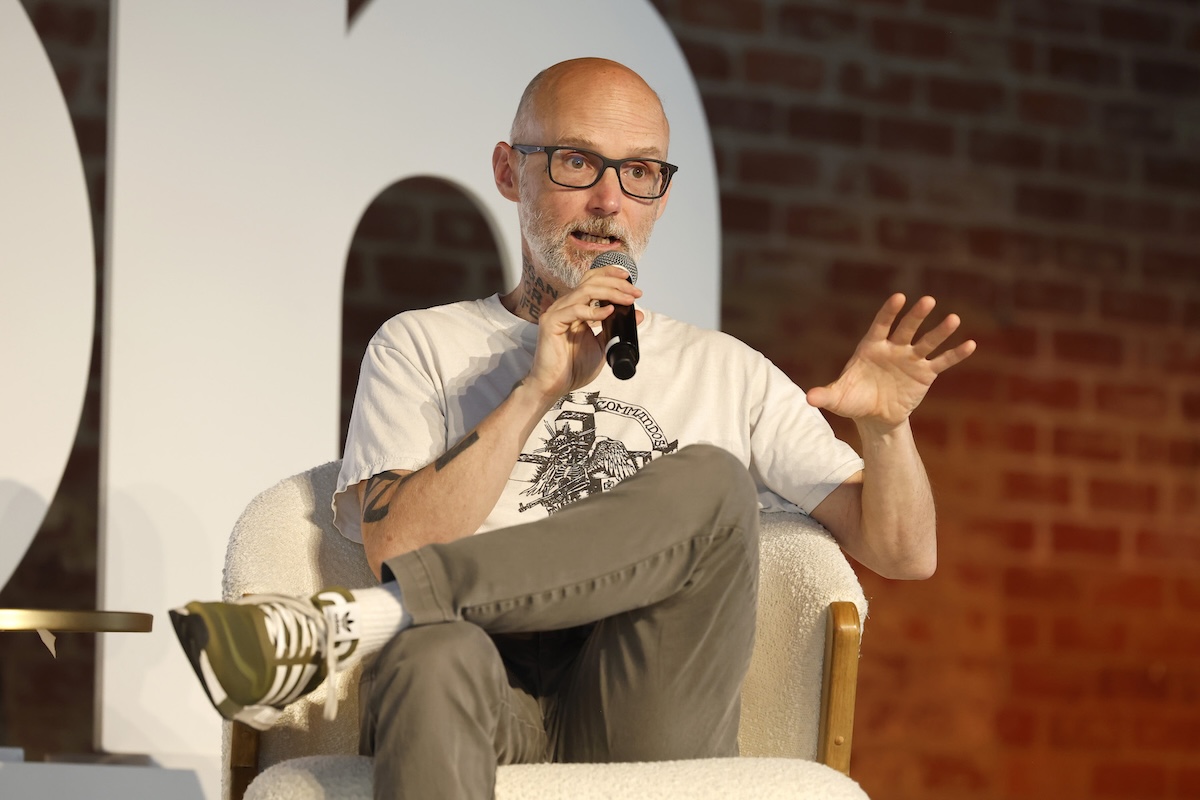
I’m happy you had that moment. Why do you think you woke up that last time?
It’s a great question, and I really wish I had an answer because honestly, I don’t know. I tried to get sober many times, like dozens of times. It’s that question—why did that one work? When I work with sponsees, that’s my first question to them, “Are you done? Like, are you really?” When you read the first step—and again, some people do steps, some people don’t, whatever. My path is I love the 12 steps, but a lot of people don’t and that’s fine—but it’s asking people that question. like when you read the first step, can you say it 100 percent? When I’ve worked with sponsees who are like, “Oh, I’m not sure.” And I’m like, “Well, I hate to say it, but come back when you’re done.”
Yes, because that sounds like a reservation right there.
Yeah, for sure. But that question of the why of it. I mean, I will say I’m incredibly grateful that it happened because of not just getting sober, but when I got sober, I thought I was simply giving up liquor and drugs. And that’s it. I didn’t know that there was the change. Yeah, like the refocusing on service, trying to be selfless and having an expanded spiritual life. None of that had even crossed my mind. So I’m really grateful for that aspect of it. But I didn’t know that was a part of sobriety.
Helping others is a great segue to the relaunch of mobygratis, which you started in 2005. You’re giving away this music for free, and I think that’s another way you’re helping people, too. What made you want to relaunch it 20 years later?
I realized that a lot of what we do, it’s simply rational. We’re looking at circumstances, we’re looking at the world and we’re saying, “OK, what makes sense? What is rational?” When I got sober, from my perspective the core of sobriety is the willingness to look at evidence. Before I got sober, I was like, “Oh, I can be a healthy person and do bags of drugs that I find in public toilets” or “I can be a good person and be incredibly selfish.” It was so contradictory. It was this weird unwillingness to say, “Well, no, you can’t. Like if you drink 20 glasses of vodka a day and you do drugs that you find behind bathroom toilets, you’re not healthy.”
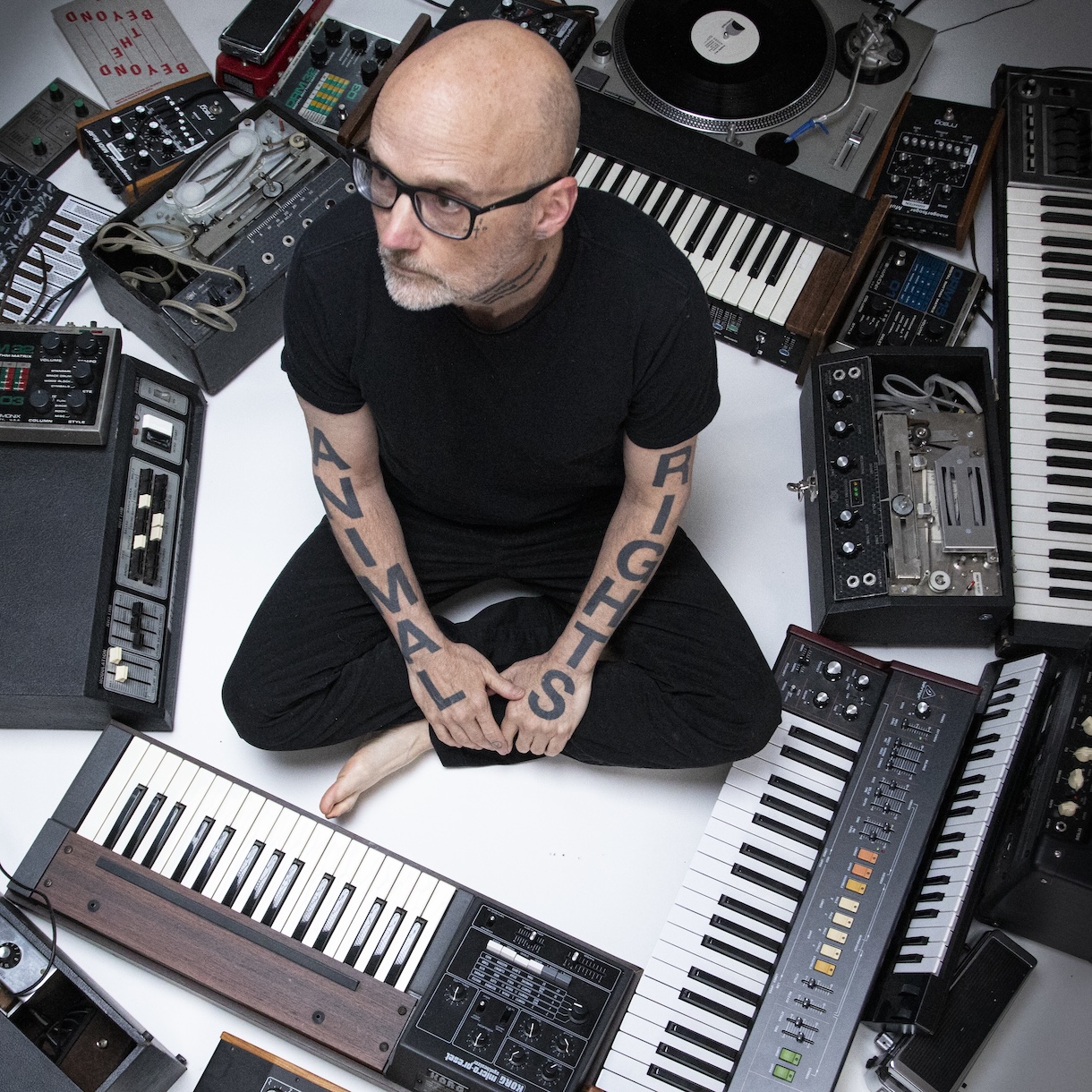
Right.
Finally admitting that and saying, “OK, here’s the evidence, how do I respond to it?” It’s the same thing that led me to be vegan. I was like, “Oh, I love animals. I don’t want to hurt them. Therefore, I should not be paying someone to torture and kill them and then eating the dead bodies.” To me, it’s just rational. So with mobygratis, to me, it’s the most rational thing of like, “Oh, you make music because you love making music.” I love collaborating with people. I had all this extra music, like 2,000 unreleased songs, so why not release them? There’s no other way. I could try to control them and monetize them, but in this world, I don’t even know if that exists. Why not just put them out there and see what happens?
There’s another facet to this and I realize it sounds way too negative, but when you have almost complete contempt for modern culture, the choices we make might seem rational, they might seem like a good choice, but they also serve as a rejection of the zeitgeist, of the current culture. So when everybody’s trying to control things and present themselves in a certain way, it’s the ethos of punk rock of like, “Well, I’m just going to do the opposite.” So on one hand—and I’m sorry for the long-winded rambling answer—it’s just taking music, putting it out there, seeing what people do with it and not controlling it. But it’s also the rejection of corporate greed and corporate control, because corporate greed and corporate control are just depressing and destructive.
It’s kind of a big middle finger to that at the same time?
Yeah, and it’s a rejection, I mean, similar to, again, to veganism, it’s like you’re rejecting the status quo, but you’re also replacing it with something better. Same way like in 1981 and ’82 when I was in a hardcore punk band, it’s like we were rejecting the status quo, but we were replacing it with something that we loved so much more.
So you’re not just taking away, you’re adding to the culture.
There’s that old cliche of living well is the best revenge.
To see our running list of the top 100 greatest rock stars of all time, click here.


